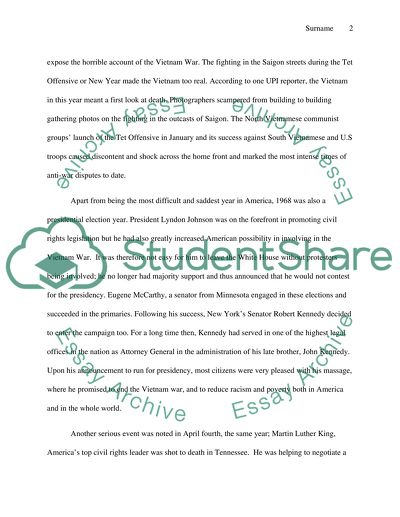Cite this document
(“1968 in U.S. History Essay Example | Topics and Well Written Essays - 1000 words”, n.d.)
Retrieved from https://studentshare.org/history/1477114-1968-in-us-history
Retrieved from https://studentshare.org/history/1477114-1968-in-us-history
(1968 in U.S. History Essay Example | Topics and Well Written Essays - 1000 Words)
https://studentshare.org/history/1477114-1968-in-us-history.
https://studentshare.org/history/1477114-1968-in-us-history.
“1968 in U.S. History Essay Example | Topics and Well Written Essays - 1000 Words”, n.d. https://studentshare.org/history/1477114-1968-in-us-history.


